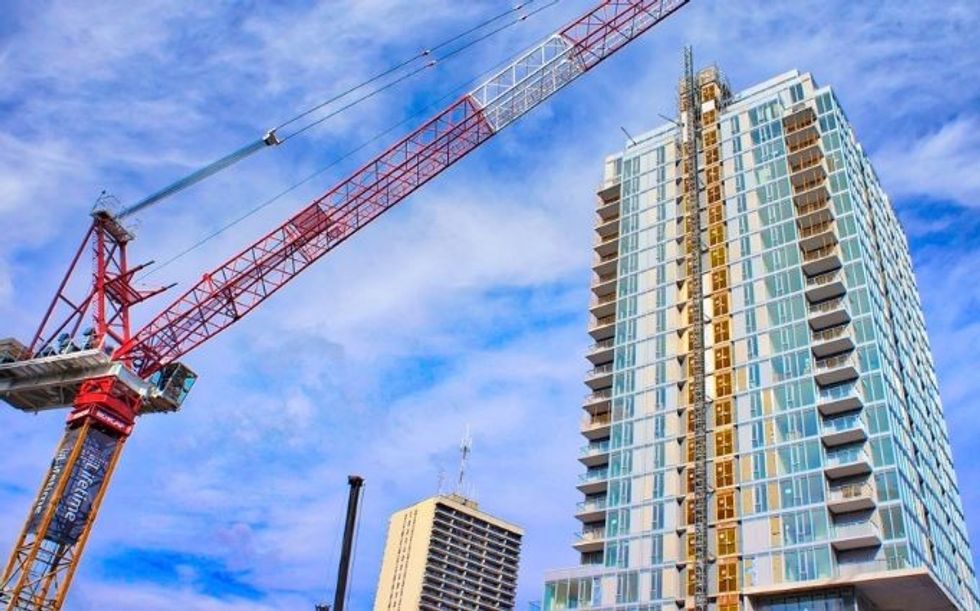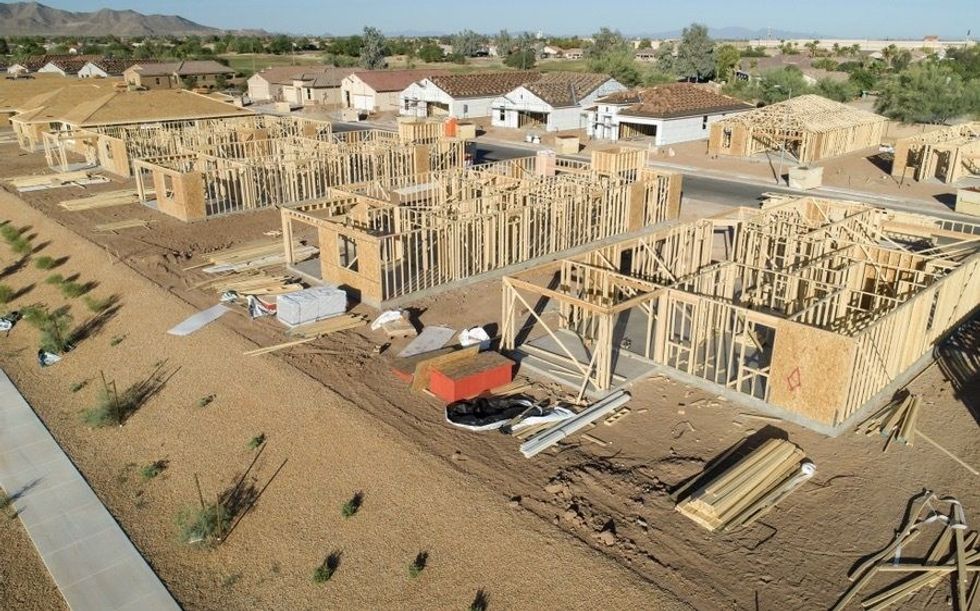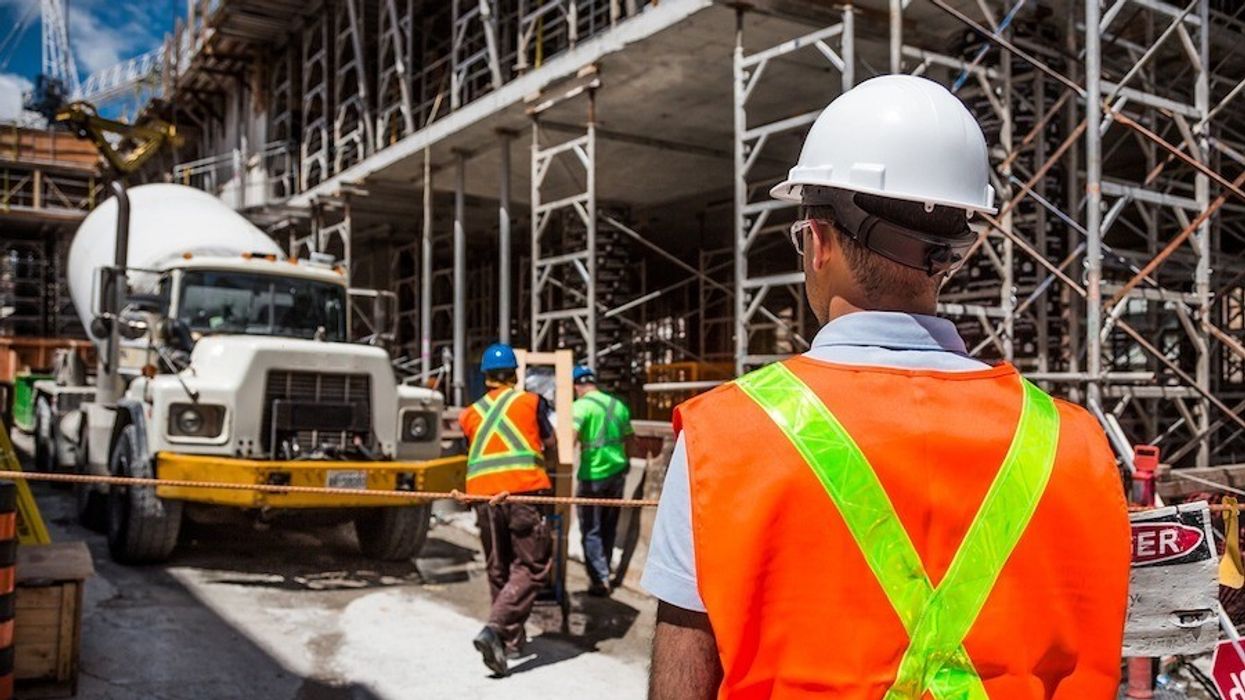“We need more homes built faster."
That’s the message driven home and doubled down upon by everyone from Prime Minister Justin Trudeau to long-time developers, and municipal governments. This is especially true in a city like Toronto, where ramped up immigration levels put pressure on an already supply-strapped and pricey market.
Of course, “getting shovels in the ground,” as they say (over and over again), is easier said than done. The rapidly eroding red tape is just one hurdle. So are those peskily high interest rates that have caused a slump in sales. Persistently sky-high costs to build are another. Today’s developers can’t seem to catch a break on the new project front. Toronto has seen construction costs rise a whopping 40% between 2020 and 2023 – the second-highest in the world. Now, the city is in store for a major spike in development charges.
As of May 1, the development charges on Toronto condos will increase 20.7% from their current rates across the board. This means that two or more bedroom apartment units will come with a $68,587 price tag for development charges (up from $56,804) and a one-bedroom and bachelor unit will now cost $44,774 in development charges (up from $37,081).
This isn’t to say that developers didn’t see this coming. Back in July 2022 – months into a run of perpetually climbing interest rates – Toronto City Council voted to raise development charges nearly 50%. The new development charges were phased in over a two-year period in an attempt to help manage the impact on community development. Half of the increase amount was implemented on May 1, 2023, with the full rates coming into effect this year, on May 1.
Naturally, the hike in charges – phased over a couple of years or not – haven’t exactly been well-received from Toronto’s building and development industries, especially in today's embattled market. Developers have warned that higher charges, paid by the developer at the time a building permit is issued, would discourage development in the city at a time when it’s much-needed.
Of course, infrastructure is needed to support an influx of towering developments – and somebody has to pick up the tab for that. Development charges collected by the City go towards building adequate infrastructure to serve residents of these new buildings – including things like libraries, parks, daycares, and recreation centres. These neighbourhood-enriching community infrastructure projects ultimately add to the value of new homes, highlight Toronto City Councillors.

More Costs Mean Fewer Homes
Hiking development fees obviously raises costs to build new homes, limiting developers’ ability to add supply to the housing market. In today’s climate, the notable hike in development charges is enough to dissuade some developers from launching new projects until sales pick up. “Put simply, the more costs you put on there, the less viable projects are going to be,” says Julian Schonfeldt, Chief Investment Officer at CAPREIT.
He points to the recent rise in construction costs – something that’s “not new to anyone” – and the higher interest rates that are already dissuading developers from launching new projects. “You’re in a situation where costs are high, various types of levies or taxes are high, interest rates are high, and housing is quite unaffordable,” says Schonfeldt. “So, to make housing more viable and affordable, we need to lower costs in any form that we can.”
Of course, infrastructure is needed. And, of course, this doesn’t come cheap. The question ultimately comes down to who will pay for it. “These are obviously crucial services that benefit all – new and existing communities – and they require continuous investment,” says Schonfeldt. “But new developments can’t be the sole funding source. We need support from all levels of government.”
Some of the challenging building costs are easier for the government to influence than others, says Schonfeldt. “It’s more difficult, for example, for a government to influence the price of concrete,” he says. “But they’re in charge of setting a development charge policy and recognize that it represents a direct cost for developers. We think managing and monitoring increases should be a priority.”
Development Fee Hikes Hurt Affordability
The development fee hike, say critics, is counterproductive to tackling Toronto’s housing affordability crisis. The worry with the projects that do get made is that – while increasing supply – they’ll do nothing to address housing affordability. Many caution that the cost will simply get passed onto buyers and then to renters, rendering an already unaffordable housing market even more unattainable.
“This additional hike will impact housing affordability,” says Schonfeldt. “They’ll mean higher prices for buyers – and for tenants. Or worse, they make a project less viable all together, and you have less supply coming in. We’ve seen sluggish condo sales across the GTA for the past year, and from what we’ve heard, developers are holding off on project launches until sales pick up. While we remain hopeful for some relief in interest rates and an uptick in market conditions, the development industry needs support from the government to add to the much-needed housing supply.”
Slump In New Home Sales
According a recent report from the Building Industry and Land Development Association (BILD), March represented yet another month of record-breaking lows for new home sales. Continuing the trend we’ve seen in the “very slow” start to the year, all three months of Q1 have set record lows for new home sales in the GTA. There were 1,125 new home sales in March, which was down 16% from March 2023 and 66% below the 10-year average, according to Altus Group, BILD’s official source for new home market intelligence.
Naturally, this has implications on the region’s building industry. “GTA new homes sales for March came in at a record low as buyers remained on the sidelines,” said Edward Jegg, Research Manager with Altus Group in the report. “Builders have responded with fewer new launches until sales begin to recover.”
“While the current situation is very beneficial for prospective new home buyers, it is a period of increased jeopardy for builders and developers that is becoming more critical with every passing day,” said Justin Sherwood, SVP Communications & Stakeholder Relations at BILD. “At the very time when builders should be ramping up production, they cannot due to a combination of high interest rates, elevated construction costs, and slow demand. This is becoming a very concerning situation and persistence of these market conditions risks future housing supply.”’

Projects "On Hold Indefinitely"
We’re already seeing ramifications of the current climate play out in terms of paused projects and fewer launches. New data from Urbanation shows that some 21,505 units that were on track to launch since the market began to slow down in 2022 are now “on hold indefinitely.” On Monday, Toronto-based research and consultancy firm Urbanation reported that only four new condo projects were brought to market in the GTHA in the first quarter of 2024. Those four projects jointly contained just 958 individual housing units, and three were in the 905 region. It doesn’t take a statistician to know that’s no match for the region’s growing population.
What’s more, Urbanation also said that some 60 new condo projects that were on track to launch since the market began to slow down in 2022 are now “on hold indefinitely.” These would have added some 21,505 new housing units to the region, and their marketing was well under way when they were paused.
So, you can reduce all of the red tape that you want: if the costs are too high, developers simply won't build. And if they do, the end user will ultimately be left to pick up the tab.






















